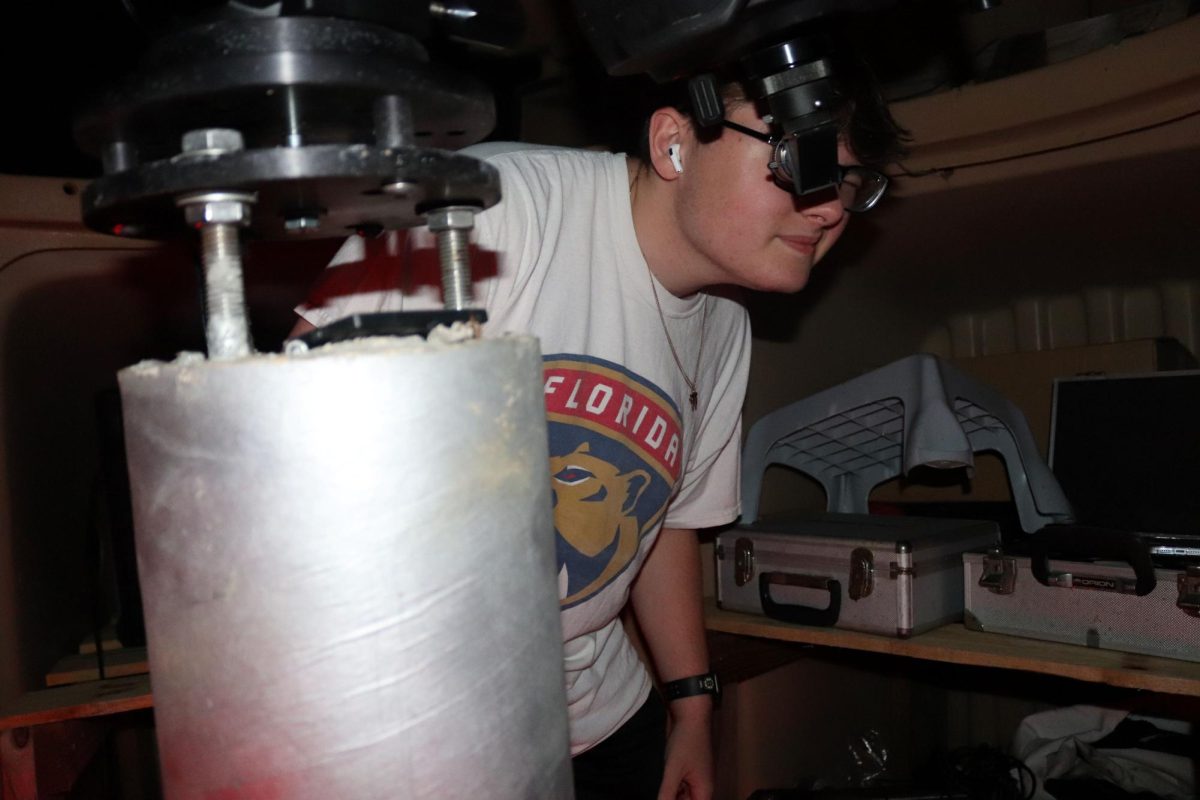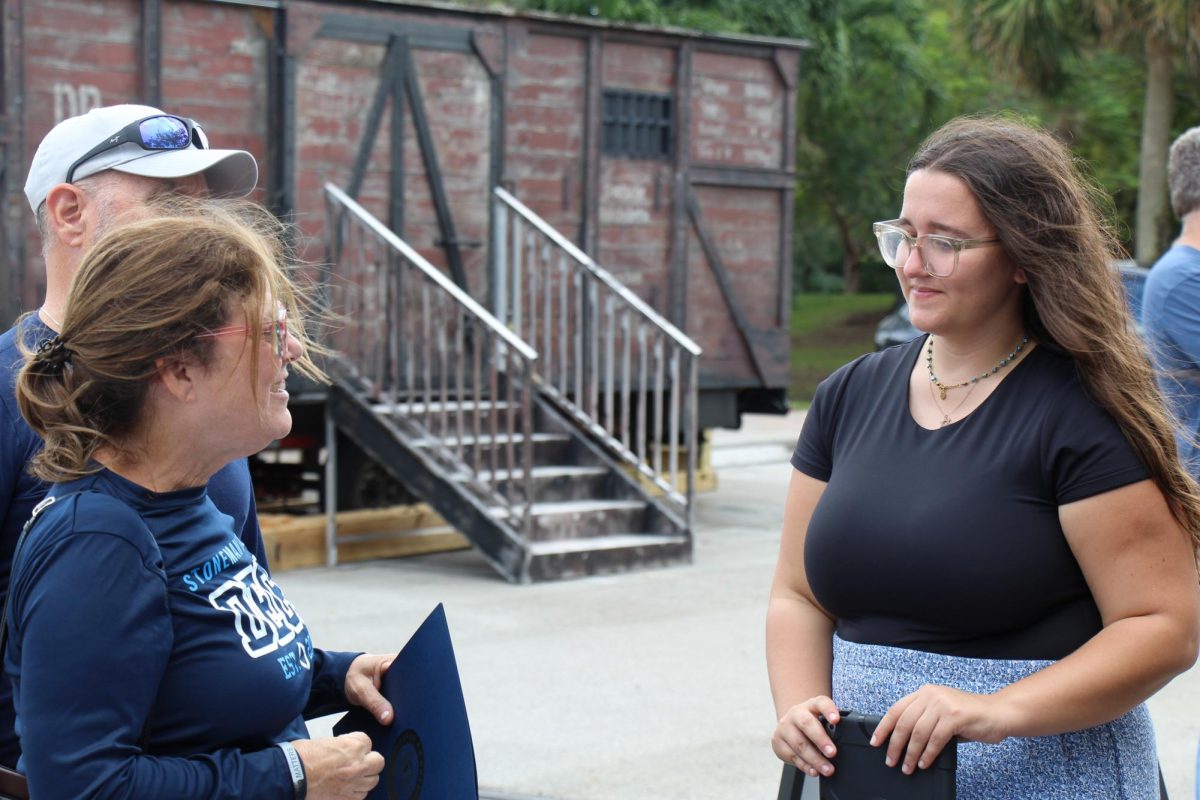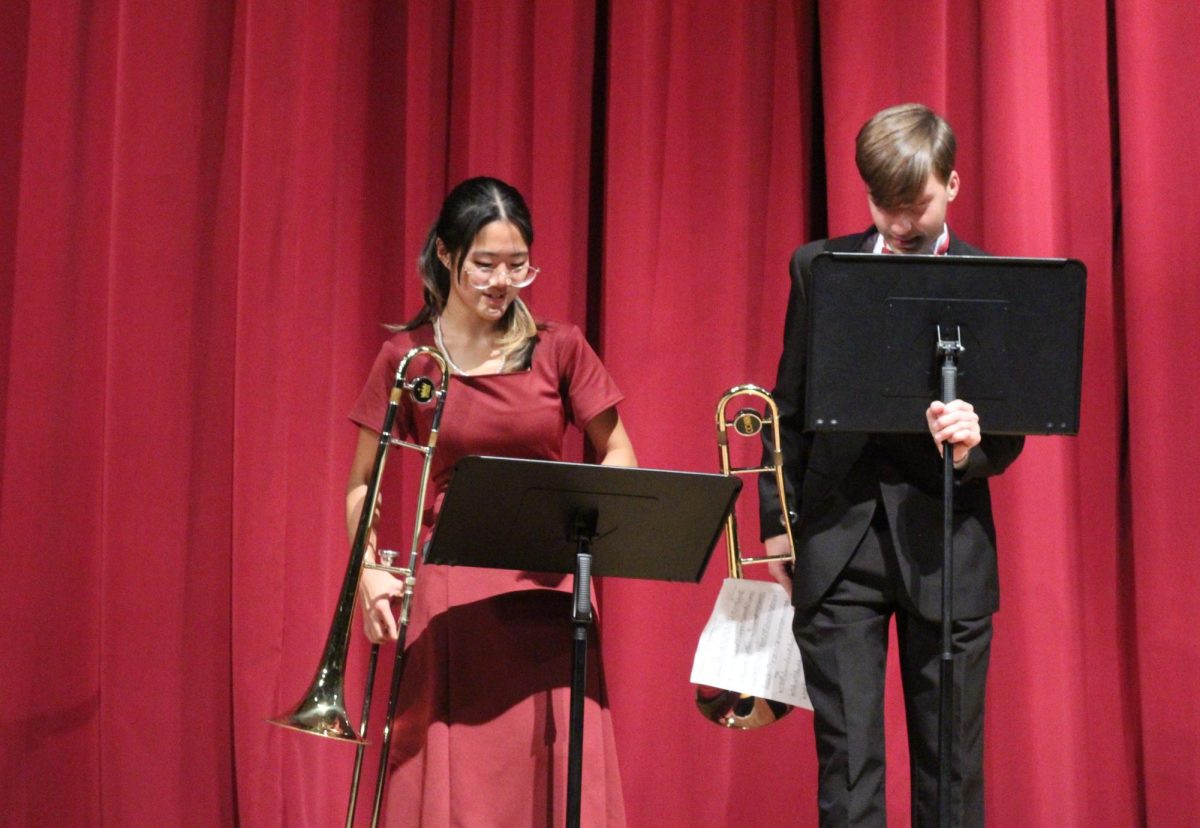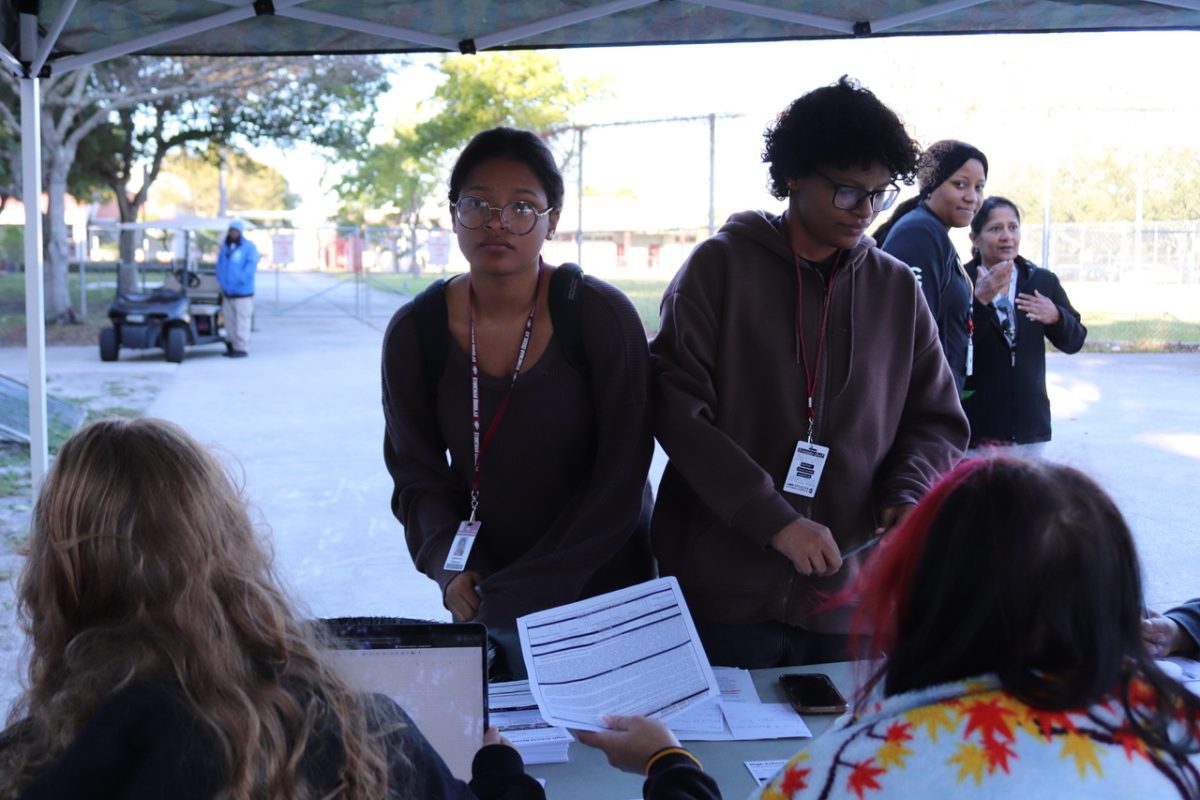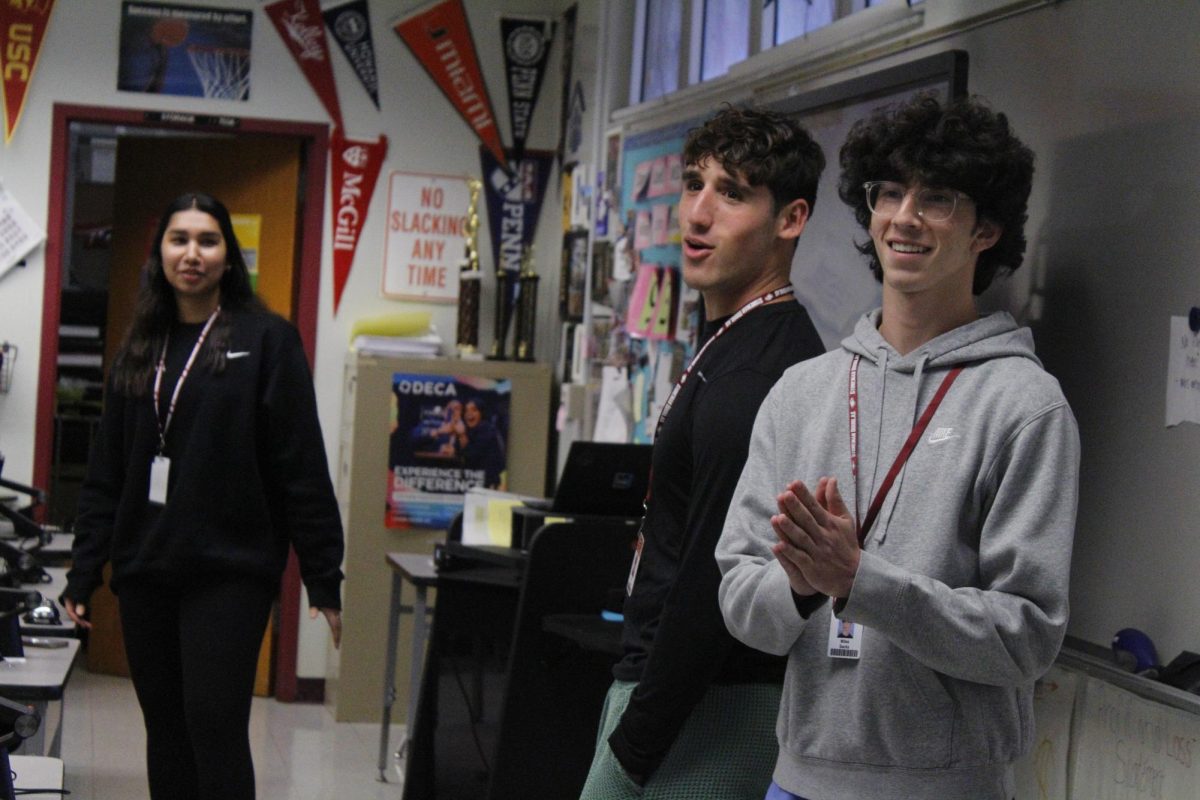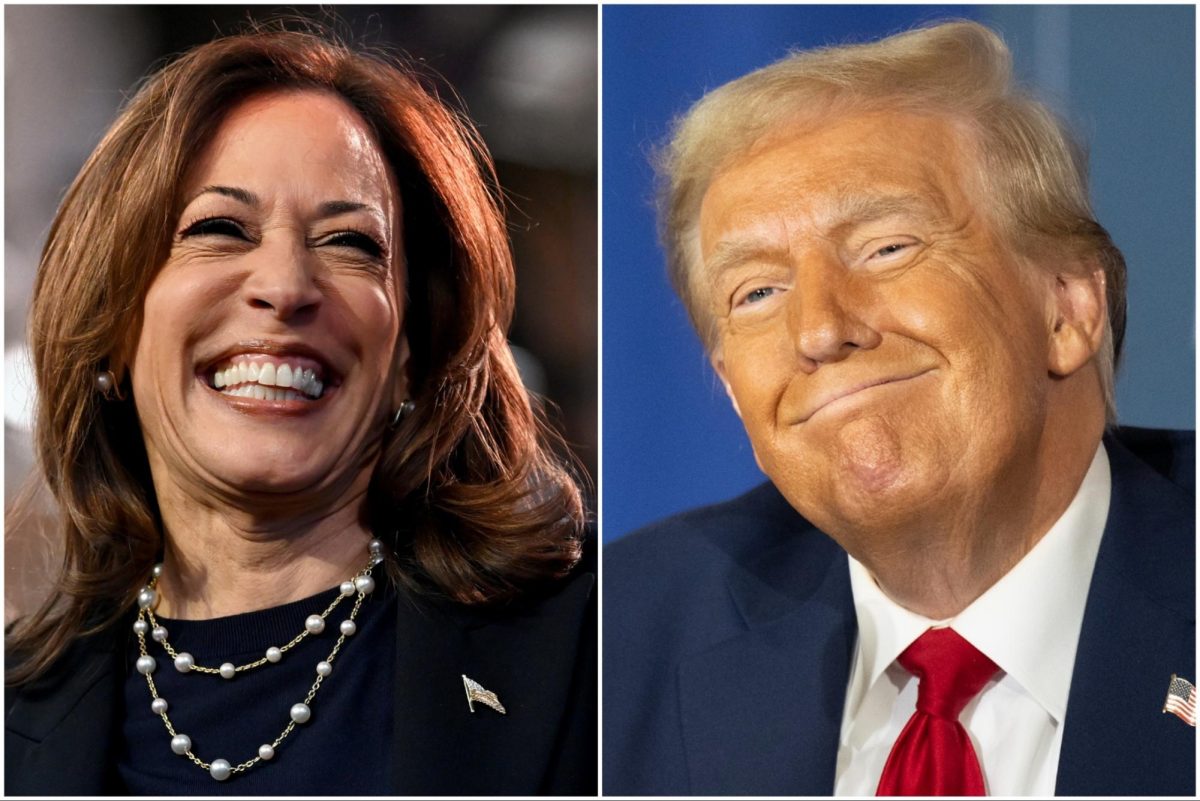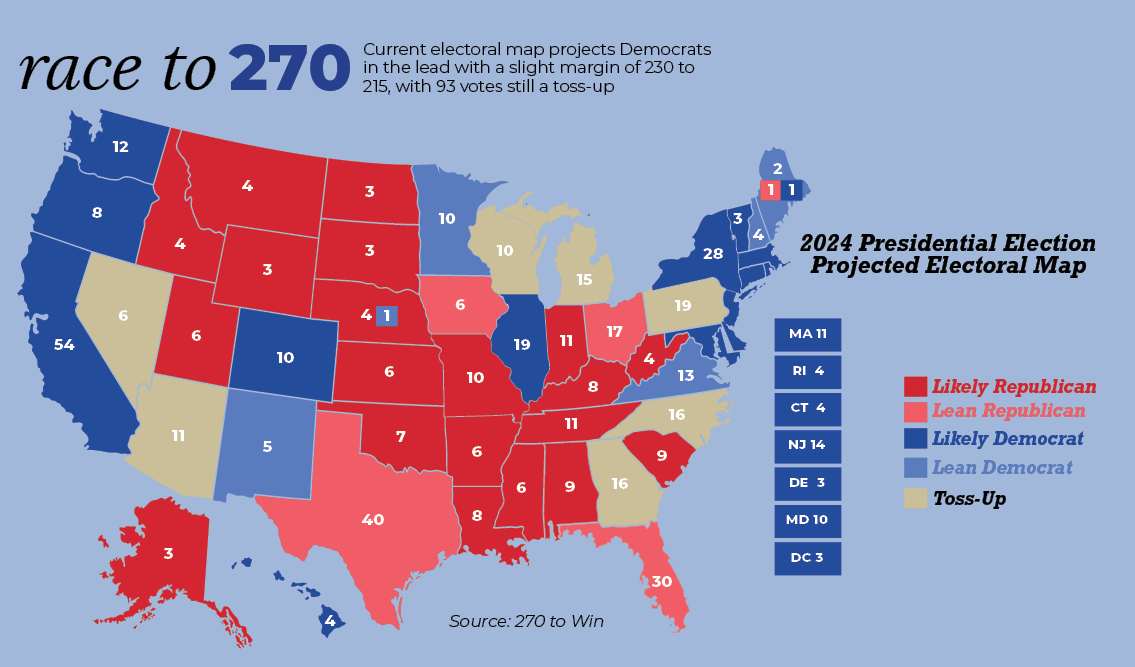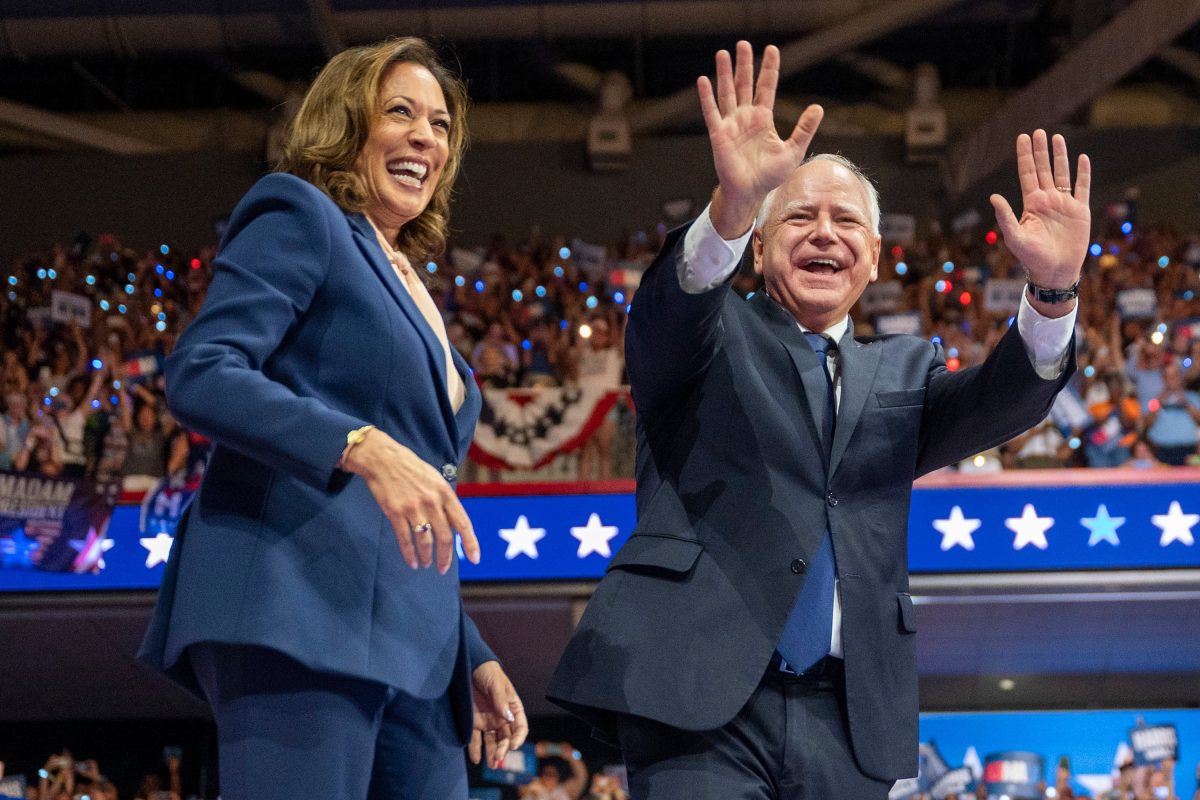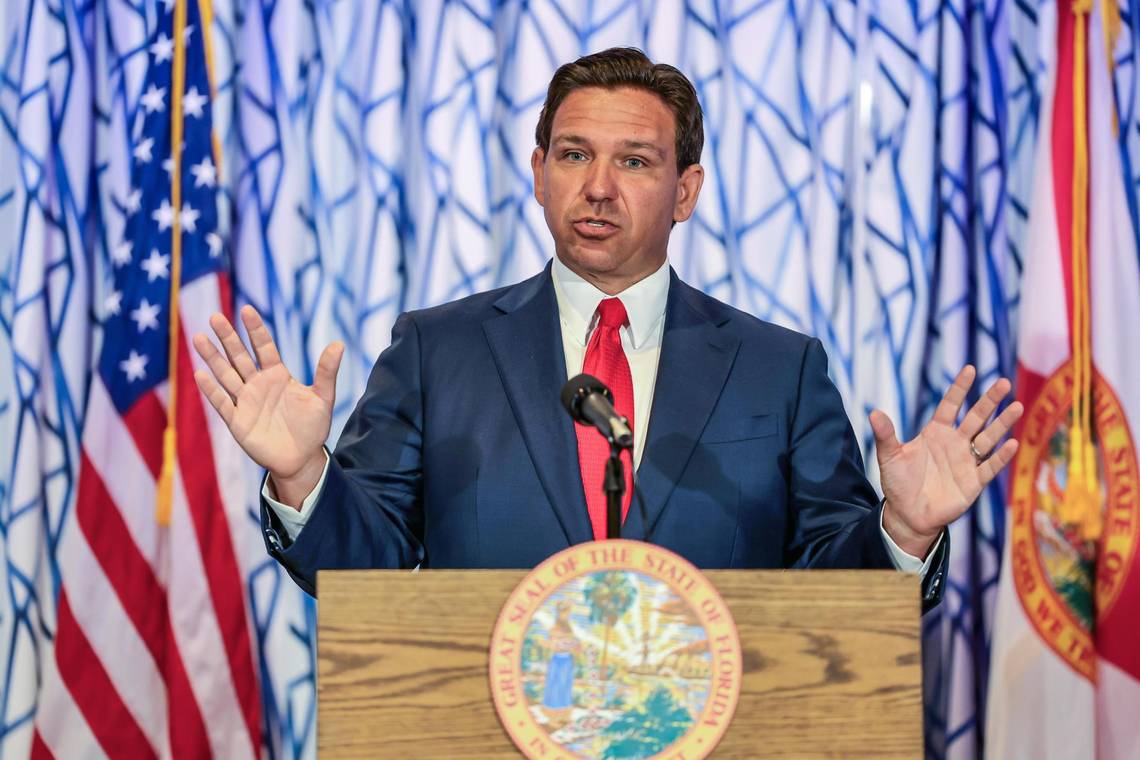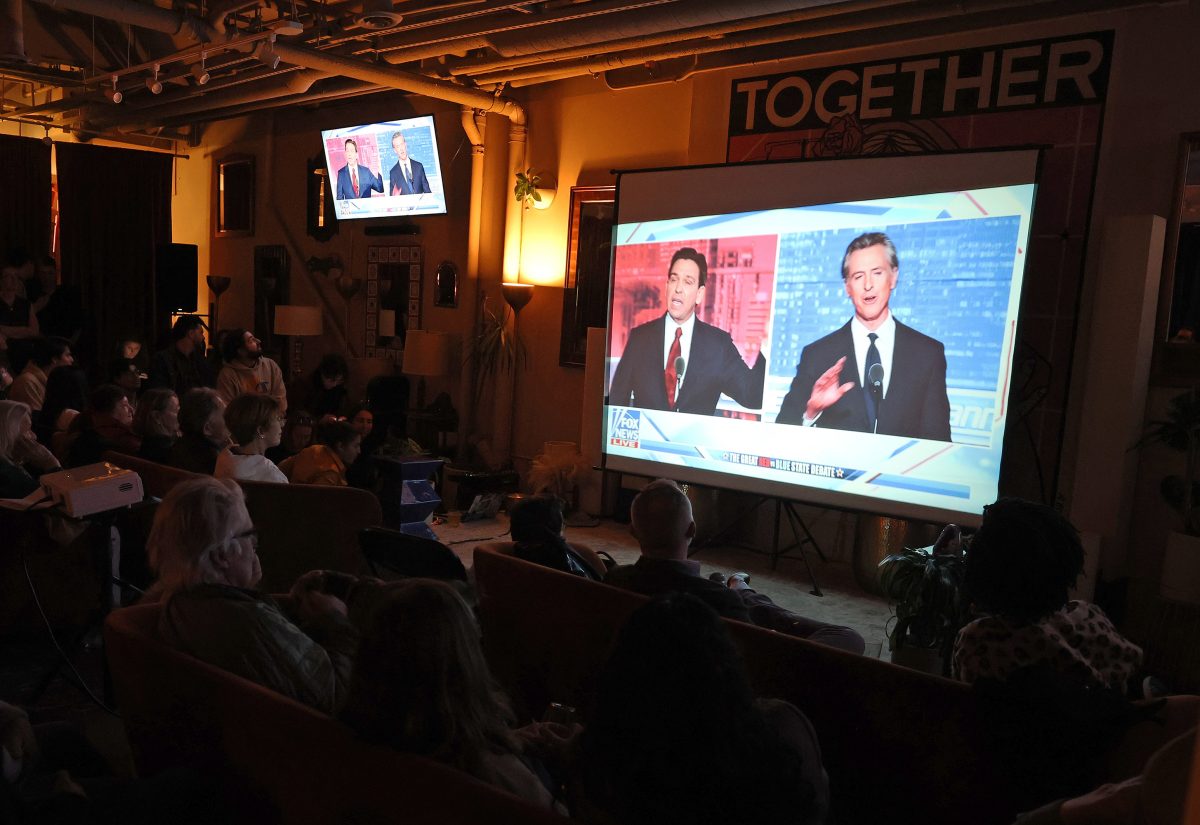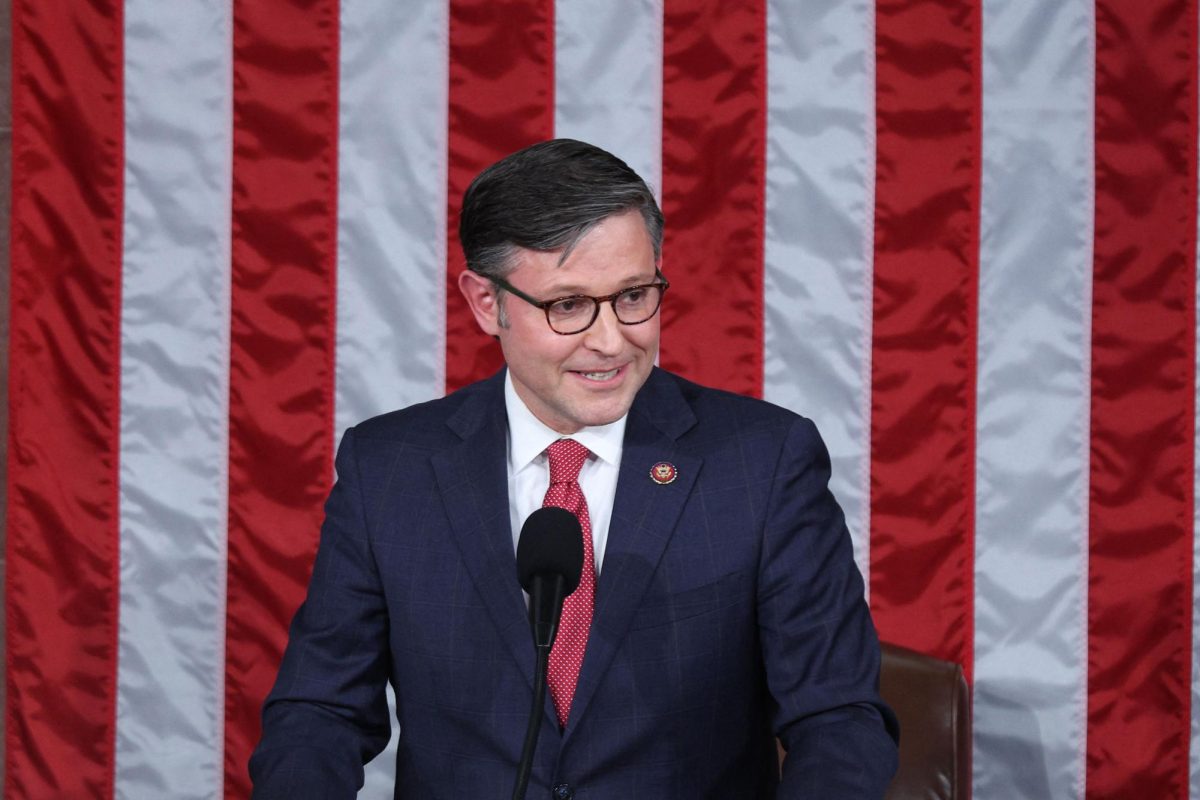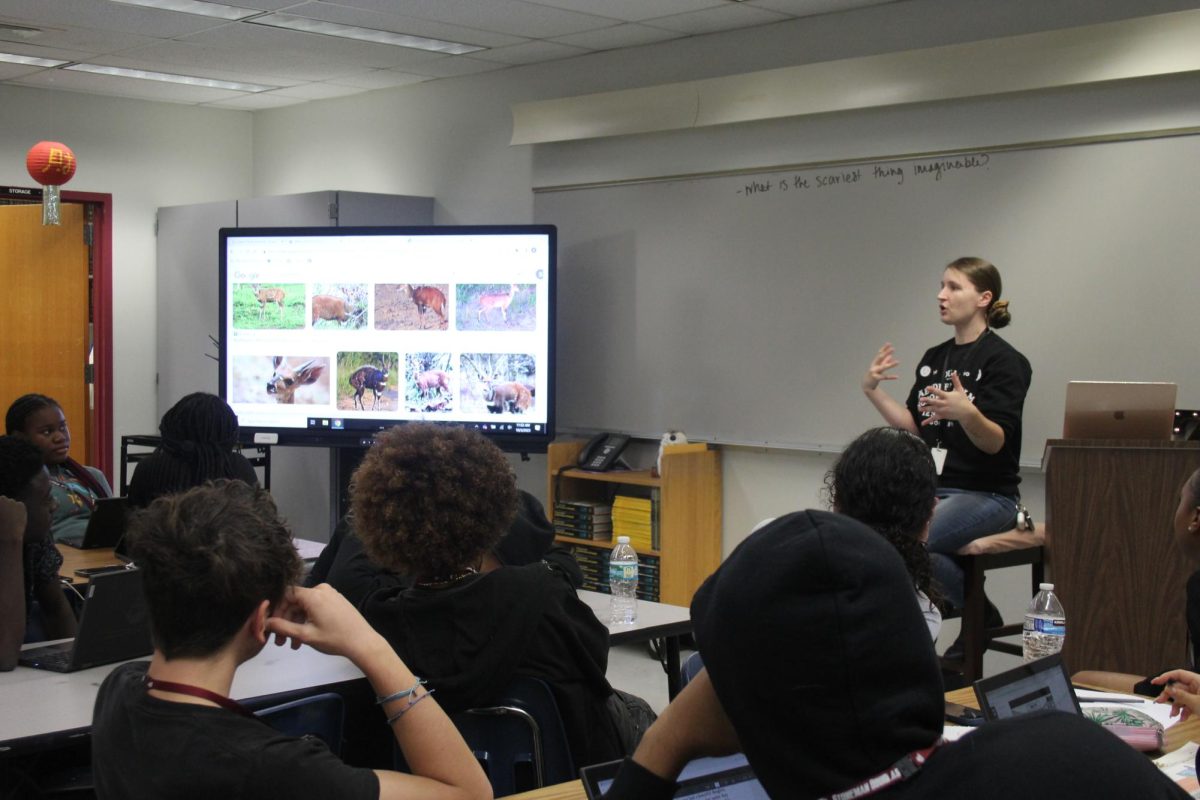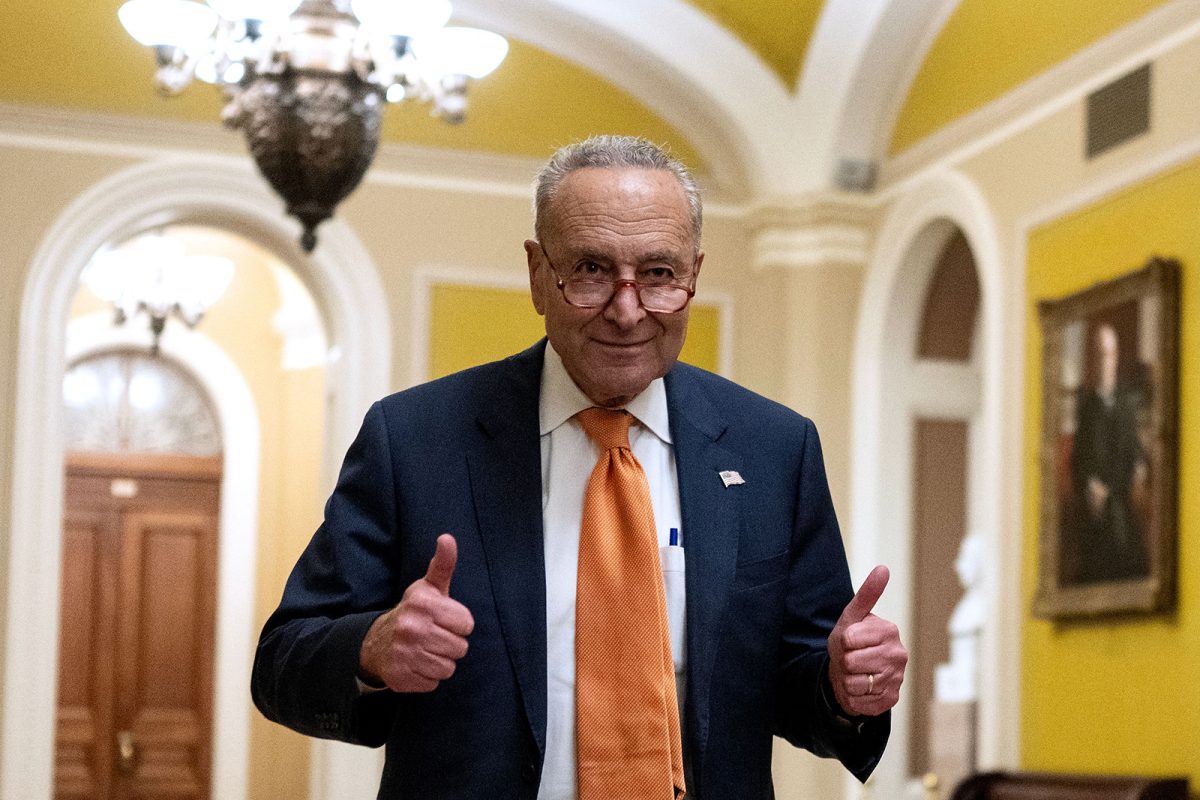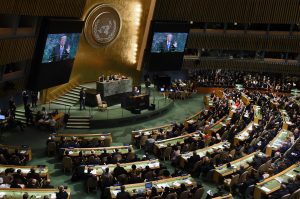
Since its formation in 1945, the United Nations has served as an international body to promote peace and justice throughout the world. On Tue. Sept. 19 in New York the council convened for the 72nd session of the General Assembly to debate the major issues of the world, including climate change, nuclear weapons and North Korea.
As the motorcades of various world leaders and representatives rolled down the streets of the Big Apple towards the United Nations Headquarters, New Yorkers came out in force to demonstrate their support for the organization. With the meeting scheduled for 3 p.m., the agenda for the day was stacked with a variety controversial discussions.
U.N. Secretary-General António Guterres opened the session by emphasizing the grave challenges faced by humanity.
“Trust within and among countries is being driven down by those who demonize and divide,” Guterres said. “We are a world in pieces.”
However, Guterres also claimed that trust could be restored and terrorism could be reduced if citizens called for more intensified international efforts. He asked political, religious and community leaders to stand up against hatred and do their civic duty to serve as models of tolerance. On the subject of terrorism he also made known to the public his intention to unite the heads of counter-terrorism agencies; the first meeting of its kind is to take place in 2018.
On the subject of the increasing humanitarian crises, from Syria to Myanmar, Guterres stressed the important of political solutions, believing that only peaceful ends to violations of international humanitarian law and global conflicts could ultimately bring about the eradication of terrorism.
Another key point he made was on climate change, pushing for countries to implement the Paris Agreement as quickly and effectively as possible. With only three countries having not signed the United Nations Accord that was established in 2016, Guterres expressed his hope to fulfill the goals of the 2030 Agenda for Sustainable Development created in 2015. The agenda looks to provide a blueprint to sharing technological advances and expanding trade across the globe.
He ended his opening address on the subject of the increasing threats posed by the “dark side” of technology, including cyberwar and the escalation of cybersecurity threats in the Modern Age. He additionally highlighted the importance of the United Nations’ goal of building a development system to support countries in bettering their citizens’ lives because it reinforces the ability to safeguard peace across the globe and protects the human rights of all people.
United States President Donald Trump made his U.N. debut at the session, beginning his speech by thanking the world leaders for their generosity in the aftermath of Hurricane Harvey and Hurricane Irma.
“As millions of our citizens continue to suffer the effects of the devastating hurricanes that have struck our country, I want to begin by expressing my appreciation to every leader in this room who has offered assistance and aid,” Trump said. “The American people are strong and resilient, and they will emerge from these hardships more determined than ever before.
He continued by highlighting the significance of modernized technology and medicine as well as acknowledging the growing dangers of terrorism on the international community. In the face of these growing dangers, Trump stressed the strength of individual member states, claiming that the world was safer when states were strong, independent and free.
“The success of the United Nations depends upon the independent strength of its members,” Trump said. “To overcome the perils of the present, and to achieve the promise of the future, we must begin with the wisdom of the past. Our success depends on a coalition of strong and independent nations that embrace their sovereignty, to promote security, prosperity, and peace, for themselves and for the world.”
Trump also broached the subject of the North Korean regime. Despite thanking all of the member States that had voted in favor of Security Council resolutions imposing sanctions against the country, he said that there was more to do to isolate the Kim Jong‑un regime.
“No nation on Earth has an interest in seeing this band of criminals arm itself with nuclear weapons and missiles,” Trump said. “The United States has great strength and patience, but if it is forced to defend itself or its allies, we will have no choice but to totally destroy North Korea. Rocket man is on a suicide mission for himself and for his regime. The United States is ready, willing and able, but hopefully this will not be necessary.”
In regards to the government of Iran, Trump condemned their failure to improve the lives of their people, despite the amount of wealth the country had received from oil profits. Instead of spending the money on improving the quality of life for its citizens, Trump claimed that Iran had been spending its profits on funding the Hizbullah and other terrorists.
“This wealth [from oil profits] which rightly belongs to Iran’s people also goes to shore up Bashar al-Assad’s dictatorship, fuel Yemen’s civil war and undermine peace throughout the entire Middle East,” Trump said.
One of the last points that Trump made was regarding Venezuela and the humanitarian crisis that had occurred under the socialist dictatorship of Nicolás Maduro. Pulling back no punches Trump, launched a fiery assault on the ideals of socialism and its implementation in modern day countries.
“I ask every country represented here today to be prepared to do more to address this very real crisis,” Trump said. “We call for the full restoration of democracy and political freedoms in Venezuela. The problem in Venezuela is not that socialism has been poorly implemented, but that socialism has been faithfully implemented.”
Israeli President Benjamin Netanyahu passionately expressed that despite all the efforts Israel had put towards achieving the goals of the U.N., they still failed to garner the respect they deserve. Later on Twitter, Netanyahu praised Trumps speech.
“In over 30 years in my experience with the U.N., I never heard a bolder or more courageous speech. President Trump spoke the truth about the great dangers facing our world and issued a powerful call to confront them in order to ensure the future of humanity,” Netanyahu said in his Twitter post.
The General Assembly attracted a lot of attention, including some from Marjory Stoneman Douglas students.
“We’ve seen that Trumps White House acts differently than past administrations, and once again this is an example of Trump speaking his mind without necessarily getting input from advisors,” senior Nick Coke said. “I don’t think that thats a good thing for our international relations with the rest of the world but at least we, as Americans, know that he’s doing his best to look out for our interests, and that is the job we elected him to do. Even if I don’t agree with anything he said, I still think it was a strong speech.”
The 72nd United Nations General Assembly overall stood to represent the continued hope of establishing worldwide, lasting peace; only time will tell if these efforts will come to fruition.

